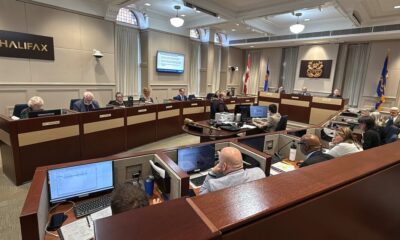Top Stories
Extreme Weather Disrupts Over 2,000 Major Events Worldwide

URGENT UPDATE: A groundbreaking study reveals that extreme weather events driven by climate change are increasingly disrupting major cultural, social, and business gatherings worldwide. Published in the International Journal of Disaster Risk Reduction, the study indicates that from 2004 to 2024, over 2,000 mass gatherings have been impacted globally, with British Columbia alone reporting 74 cancellations.
According to Shawna McKinley, co-author of the study and instructor at the B.C. Institute of Technology, the number of disrupted events has surged in recent years, particularly following the COVID-19 pandemic. “Arts, cultural, and sports events are especially vulnerable,” McKinley stated, highlighting significant hot spots in cities such as Halifax, Calgary, and across British Columbia.
The implications are dire. Extreme weather phenomena, including wildfires, hurricanes, and flooding, are causing chaos in event planning. “We’re witnessing an alarming increase in severe weather events,” said Erin Benjamin, president of the Canadian Live Music Association. “This impacts everything from cancellations to heightened emergency preparedness.”
Just last month, the Salmon Arm Roots and Blues Festival, located 25 kilometers from devastating wildfires, canceled parts of its event due to safety concerns for attendees and volunteers. The live music industry contributes approximately $11 billion to Canada’s GDP and supports over 100,000 jobs. However, many organizations operate on thin margins, making it nearly impossible to recover from cancellations.
McKinley noted that more than 57 percent of the disrupted events were directly linked to climate change, emphasizing the need for immediate action. “In British Columbia, we must prepare for escalating heat and extreme urban rainfall events,” she warned.
As extreme weather becomes the norm, event organizers are scrambling to adapt. Many are forced to enhance insurance policies and implement costly safety measures. The Salmon Arm Roots and Blues Festival, for example, moved its schedule to late July to avoid potential disruptions from wildfire smoke.
McKinley also raised concerns about indoor events, stating that severe weather can still ground flights and disrupt attendance, affecting business conferences and other gatherings. “Wildfires and flooding complicate logistics, leaving conference-goers without accommodations,” she explained.
The urgent call to action is clear: as climate change continues to wreak havoc on our environment, the events we cherish are at risk. Organizers must adapt and prepare for an uncertain future. With the stakes so high, the conversation around climate change and its impact on social and cultural events is more pressing than ever.
As extreme weather events escalate, the consequences for communities and industries will multiply. It’s crucial for stakeholders to prioritize strategies that mitigate these disruptions and safeguard the future of mass gatherings worldwide.
Stay tuned for further updates as this situation develops.
-

 Politics4 weeks ago
Politics4 weeks agoSecwepemc First Nation Seeks Aboriginal Title Over Kamloops Area
-

 World5 months ago
World5 months agoScientists Unearth Ancient Antarctic Ice to Unlock Climate Secrets
-

 Entertainment5 months ago
Entertainment5 months agoTrump and McCormick to Announce $70 Billion Energy Investments
-

 Science5 months ago
Science5 months agoFour Astronauts Return to Earth After International Space Station Mission
-

 Lifestyle5 months ago
Lifestyle5 months agoTransLink Launches Food Truck Program to Boost Revenue in Vancouver
-

 Technology3 months ago
Technology3 months agoApple Notes Enhances Functionality with Markdown Support in macOS 26
-

 Lifestyle3 months ago
Lifestyle3 months agoManitoba’s Burger Champion Shines Again Amid Dining Innovations
-

 Top Stories2 months ago
Top Stories2 months agoUrgent Update: Fatal Crash on Highway 99 Claims Life of Pitt Meadows Man
-

 Politics4 months ago
Politics4 months agoUkrainian Tennis Star Elina Svitolina Faces Death Threats Online
-

 Sports5 months ago
Sports5 months agoSearch Underway for Missing Hunter Amid Hokkaido Bear Emergency
-

 Politics5 months ago
Politics5 months agoCarney Engages First Nations Leaders at Development Law Summit
-

 Technology5 months ago
Technology5 months agoFrosthaven Launches Early Access on July 31, 2025





















